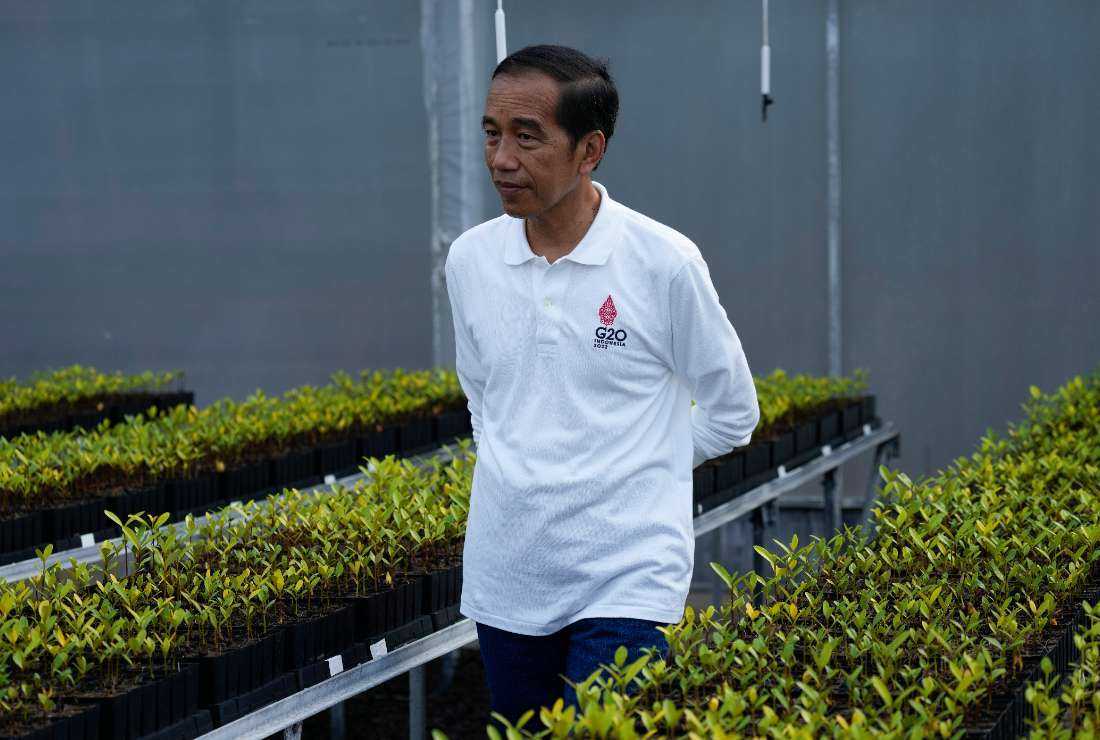
Joko Widodo has been moving away from a hardline stance against drug offenses

Indonesian President Joko Widodo walks through a tree nursery at the Taman Hutan Raya Ngurah Rai Mangrove Forest, on the sidelines of the G20 summit meeting, in Denpasar, Bali, Indonesia, on Nov. 16, 2022. (Photo: AFP)
Indonesian President Joko Widodo has granted clemency to a woman who spent more than 20 years on death row for drug smuggling, the convict's lawyer said Friday, a move rights group Amnesty termed "unprecedented".
Merri Utami, 49, was sentenced to death in 2002 by a court in Tangerang, west of the capital Jakarta, after she was found guilty of trying to smuggle heroin into the country. She had claimed that she was duped into becoming a drug mule.
"We appreciate this clemency decision. Finally, the president wants to open his eyes that drug crimes are not only about drug kingpins and... harsh punishments," said Aisya Humaida, one of Utami's lawyers.
Amnesty International's Indonesia executive director Usman Hamid welcomed the decision to grant clemency to a drug convict on death row, terming it "unprecedented" under Widodo's administration.
"This is important to show that there is no correlation, let alone causality between death sentence and the decline in narcotics crimes," said Hamid.
Utami's lawyers were considering next steps in order to try to further reduce her sentence, Humaida said.
Widodo granted Utami clemency almost seven years after she first sent a plea to the president.
In 2014, Widodo declared a "drug emergency" soon after coming to power, calling for harsher punishments for drug offenses and reinstating executions.
His government has, however, begun to amend its hardline policies, said human rights lawyer Todung Mulya Lubis.
"There is a change in policy," he told AFP. "The National Narcotics Agency used to actively advocate death penalty for drug offenders. Now, (they are) focused on rehabilitation."
Indonesia handed out at least 114 death sentences in 2021, according to an Amnesty International report, bringing the size of its death row to more than 500, including a number of foreign nationals.
As of 2021, 82 percent of all recorded death sentences were awarded for drug-related offenses, according to the report.
Utami was moments away from being executed in 2016, but authorities spared her and nine other convicts at the last minute.
Another female convict, Mary Jane Veloso, a Philippine citizen, was also set to face the firing squad in 2015, but was granted a reprieve after a woman suspected of recruiting her was arrested in the Philippines.
She had been arrested in Indonesia in 2010 for carrying a suitcase lined with 2.6 kilograms (5.7 pounds) of heroin, and was later sentenced to death.
The Philippines government sought clemency last year for Veloso, the latest high-level attempt to save her life.
Help us keep UCA News independent
The Church in Asia needs objective and independent journalism to speak the truth about the Church and the state.
With a network of professionally qualified journalists and editors across Asia, UCA News is just about meeting that need. But professionalism does not come cheap. We depend on you, our readers, to help maintain our independence and seek that truth.
A small donation of US$2 a month would make a big difference in our quest to achieve our goal.

Share your comments